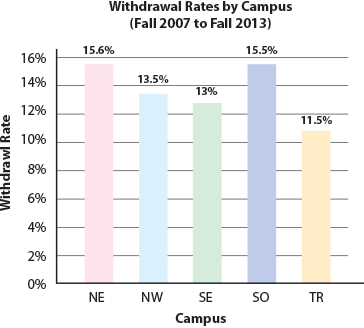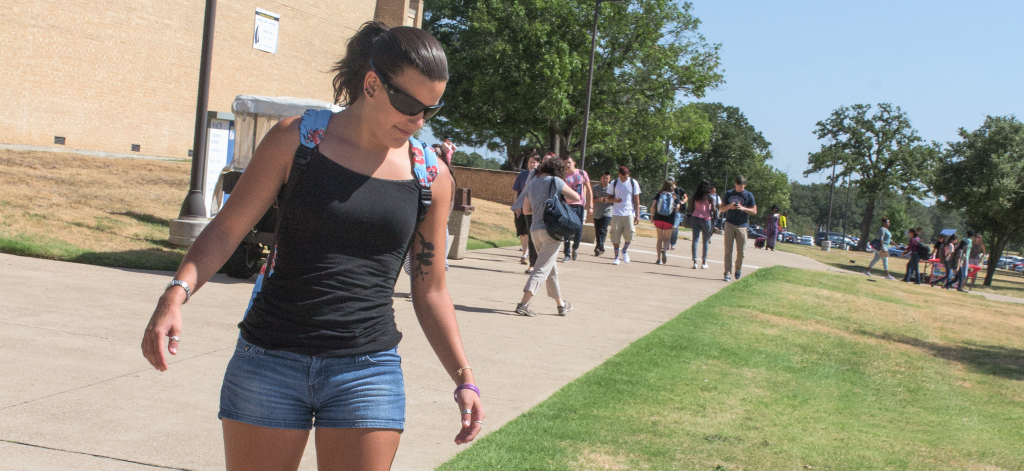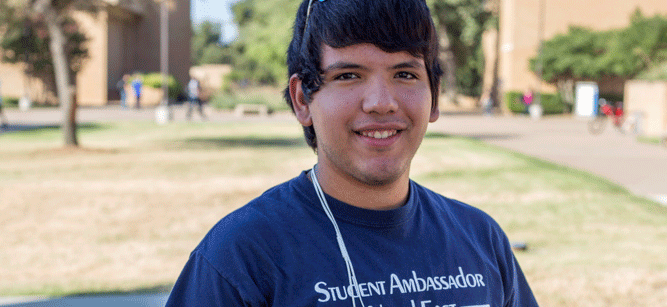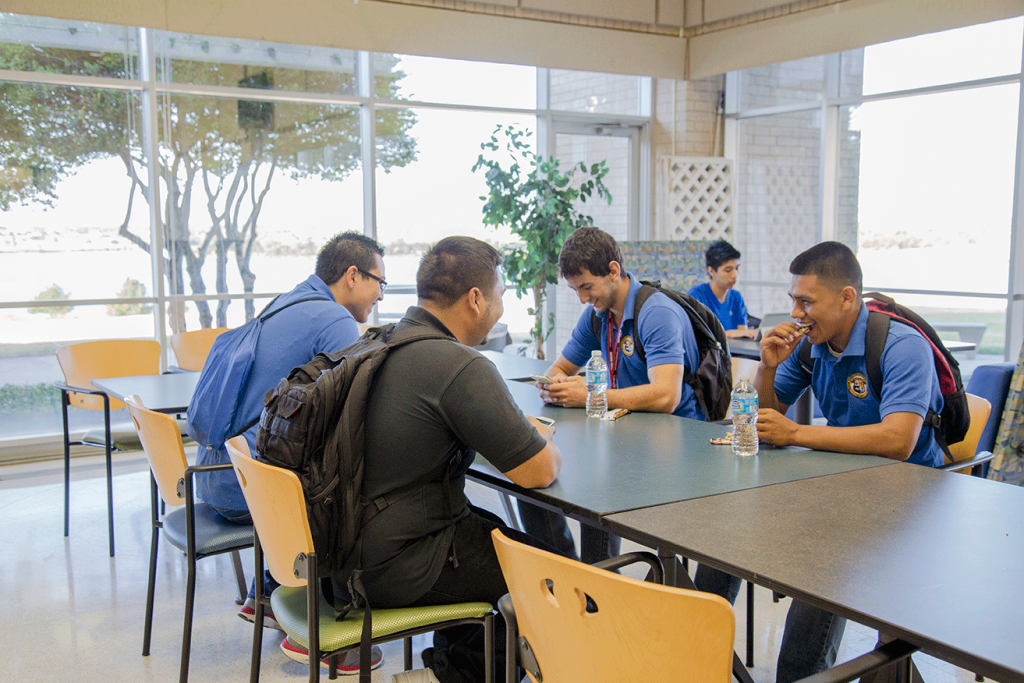
Graphic by Eric Rebosio/The Collegian
By Victor Henderson/reporter
NE student Jessica Venzor dropped an economics and English class when she first began her college career in 2007.
“I personally dropped classes because I had not talked to a counselor,” Venzor said. “I do believe that if I had talked to someone and had some sort of path mapped out, I would not have dropped or failed these classes.”
Despite a variety of resources available to them, some students choose to drop without pursuing other options, which can create more problems.
Venzor said she had no idea what she was doing the first time she enrolled in school. She later realized the economics class she was taking wasn’t necessary for her degree plan, and she enrolled in the same English course three times because of failing it or dropping it.
After taking a short break from school, Venzor is back and has made talking with her counselor a priority. She only wishes she knew back then what she knows now.
“Looking back, there was really no reason for me to drop and fail English,” she said. “If I had talked to someone, I also would have known not to take the economics class.”
She talked to several counselors before finding the right one for her, and she suggests everyone do the same.
Students are limited to a maximum of six course drops throughout their education.
The Texas Legislature passed a law in 2007 that stated: “An institution of higher education may not permit a student to drop more than six courses, including any course a transfer student has dropped at another institution.”
Students also don’t always get their tuition money back. Any drop or withdrawal within the first 15 calendar class days results in a 70 percent refund.
According to TCC’s Office of Institutional Research, Planning and Effectiveness, BIOL 1406, ENGR 1201 and COSC 1436 are the classes with the highest withdrawal rates in the fall semesters between 2007 and 2013.
South biology professor Jean de Schweinitz teaches BIOL 1406. She has her students read letters of advice written by previous students. In these letters, the students warn that usually half the class will drop for various reasons.
“Some students have problems with transportation,” she said. “Others have family problems — illness, death in the family, job loss, divorce. Some students don’t really know why they were in the class. They just followed a counselor’s advice and signed up.”
De Schweinitz listed students not buying the textbook, turning in their assignments and doing extra credit as other reasons why students end up dropping.
TR student Lorenzo Rosas said he dropped five classes between fall 2010 and spring 2014 because he fell behind after suffering a brain injury. Though his neurologist told him to take things slowly, Rosas thought he could still perform as well as he did before, so he informed disability support services of his injury and continued with his classes.
In all but one class, he talked to his instructors before deciding to drop.
“Dropping classes made me feel like a quitter,” he said. “Even though I have a brain injury, that’s not an excuse.”
The one class he dropped without talking to his instructor first could have ended differently had he expressed how he struggled.
“I was in high school,” he said. “It was a dual credit class. I was young, so I just didn’t think about talking to my instructor.”
Rosas received his Associate of Arts and Associate of Applied Science degrees in May and plans to transfer to the University of Houston in spring 2015.
“I’m self-supporting and want time to save so that I can support myself when I move to Houston,” he said. “The biggest thing I’ve learned is that I need to pace myself.”
James Varnado, a counselor on NE Campus, tells struggling students to first go back to their instructors and ask for suggestions to help with grade improvement. For particular subjects, he may also send them to the SOS center.
Varnado said some students tend to struggle in classes because they have a learning disability that makes things more difficult. If that’s the case, he recommends they visit the DSS office on their campus.
Other reasons are a lack of motivation and the incompatibility of student interest and goals. He believes resilience and stick-to-itiveness help students succeed. He also believes students should talk to counselors, who help with career interests, and advisors, who help students figure out which classes they need.
“Anything that’s man-made can be conquered,” he said, “but you have to have that motivation. Motivation is probably the biggest indicator that they will succeed.”


























